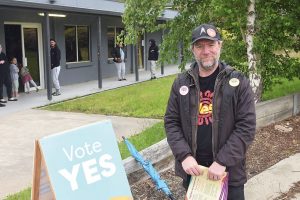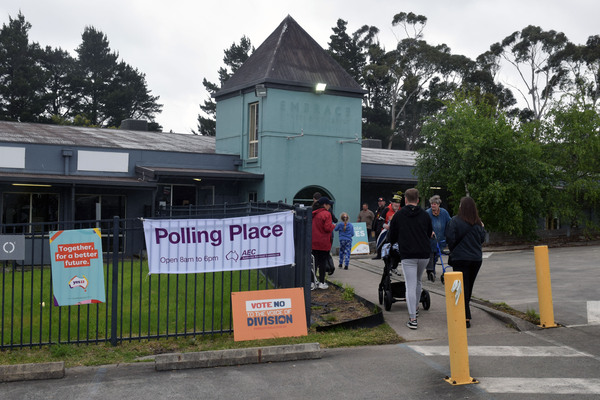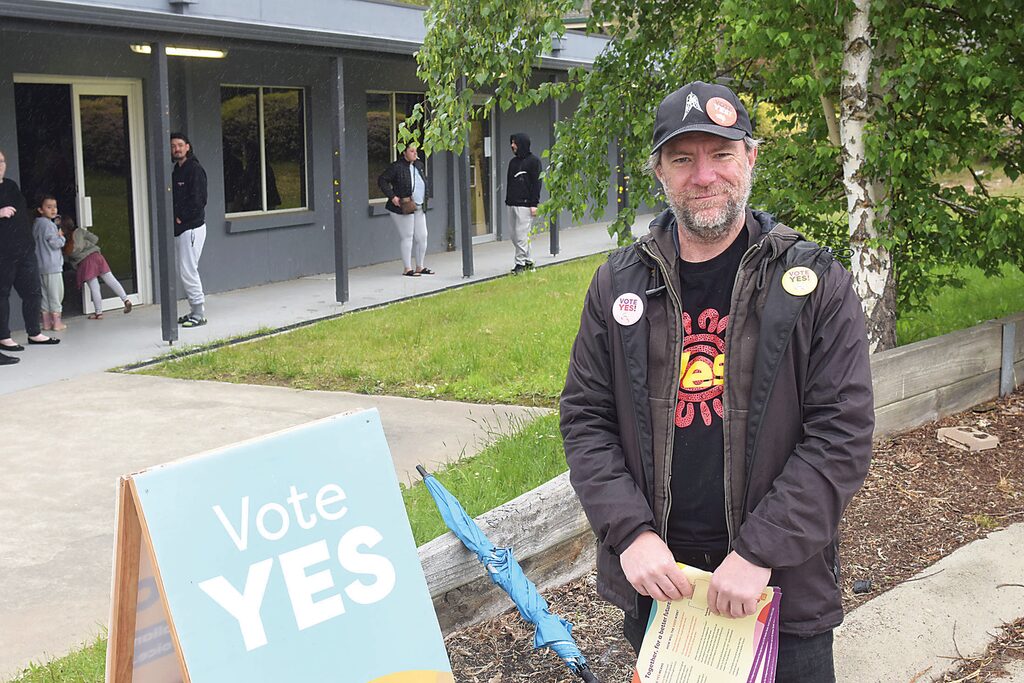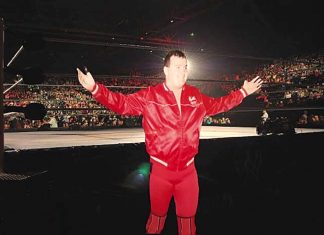STAFF WRITERS
THE Voice Referendum was defeated on Saturday night, as the majority of Australia voted ‘No’ to constitutional change to enshrine an Indigenous Voice to Parliament.
At time of going to press, 79 per cent of the vote had been counted, with 60.7 per cent of Australia (8.29 million people) electing to vote ‘No’.
In Gippsland, the no vote was an overwhelming majority.
With almost 85 per cent of the vote counted, 72.9 per cent or 71,493 Gippslanders voted ‘No’. The ‘Yes’ vote garnered 27.1 per cent of the Gippsland minority.
In the other federal electorate that encompasses some of the Latrobe Valley, 66.5 per cent of Monash voted ‘No’ with a slightly higher ‘Yes’ vote in the electorate closer to the suburban areas with 31,479 ‘Yes’ Monash voters.
Despite these figures, Victoria had the highest support for the ‘Yes’ vote from all six states, with inner city electorates like Melbourne voting in support of the constitutional change as the polls predicted.
Victoria initially had the highest support for the Voice of any state, but that suffered a decline in the weeks leading up to polling day.
As the ‘No’ vote was declared around 7.30pm on Saturday night, a very emotional Prime Minister Anthony Albanese acknowledged defeat.
“My fellow Australians, at the outset, I want to say that while tonight’s result is not one that I had hoped for, I absolutely respect the decision of the Australian people,” he said.
“Our government will continue to seek better outcomes for Indigenous Australians and their children and generations to come.
“Maintain your hope and know that you are loved.”
Federal Member for Gippsland Darren Chester, who has been staunch in his opposition to the machinations of the Voice from the outset, said now as the time to move forward together.
“Australia has spoken in the referendum and I respect the outcome,” he said.
“I want to thank the overwhelming majority of Gippslanders who participated in this referendum with respect and a kind heart towards their fellow countrymen and women from diverse backgrounds.
“The referendum result reinforces our national anthem: Australians all let us rejoice for we are one and free.
“As a nation … we have rejected a proposal that would have divided us for generations. But that doesn’t mean Australians don’t want to do more to improve the lives of all vulnerable people, particularly Aboriginal and Torres Strait Islanders.
“This is not a day to be triumphant because our nation is more divided today than it was 18 months ago.
“I remain committed to being a positive force in uniting our great nation, and providing practical help to people who need it.”
Latrobe City Councillor Tracie Lund took to Facebook to re-affirm her solidarity to First Nations people.
“Aboriginal and Torres Strait Islander Australians remain the first people of this land. Most importantly, now more than ever, they deserve a voice, recognition, and rightful place in our constitution,” she said.
“While I’m unclear how we move forward to do this. I do know that to move forward, we will need somehow to work to mend the significant harm that has been caused to so many.”
Cr Lund went on to say that “progress is slow” but the “recovery starts today”.
The voice failure, reflected more than just a city-country divide, but also an income and educational divide – as reported by the ABC interview with Emeritus Professor of Sociology Andrew Jakubowicz from the University of Technology Sydney.
“Having higher education in particular contributes to someone’s likelihood of voting ‘Yes’,” he said.
Professor Jakubowicz said working class or migrant voters were more concerned with the cost-of-living than the Voice.
“If the economic pressures weren’t as critical, the outcome might have been different,” he said.
The national opposition leader Peter Dutton said the referendum was unnecessary.
“What we’ve seen tonight is Australians literally in their millions reject the Prime Minister’s divisive referendum,” he said.
The national Liberals pledged to implement practical solutions to improve outcomes for Indigenous communities.
In a state government joint statement on the Voice, the state said they could understand the pain and hurt that has come from the referendum result.
“Australians have decided that the Commonwealth approach to change the Constitution – in this particular way – was not the right way to go,” it said.
The Premier Jacinta Allan reconfirmed Victoria’s commitment to respect Indigenous rights and culture.
“We’ll keep working towards a stronger, fairer future for Aboriginal Victorians – led by, shaped by and driven by Aboriginal Victorians,” the state government said.
The state coalition released a joint statement from the leader of the Opposition John Pesutto and Nationals leader Peter Walsh.
“Australians voted in the Voice referendum and the Victorian Liberals and Nationals acknowledge and respect the result,” they said.
“With the referendum now over, we must all rally and unite to close those gaps in life outcomes which, to this day, deny so many First Nations people the dignity and equality of opportunity they deserve.
“The Victorian Liberals and Nationals reaffirm our commitment to working with Indigenous communities across Victoria to close the gap and to achieve a better future for First Nations people.”
Professor Paula Gerber at Monash University Faculty of Law said the referendum result was a big step backwards between Indigenous and non-Indigenous relations.
“This referendum has been described as Australia’s ‘Brexit moment’. The rejection of constitutional recognition and the Voice may well be followed by ‘buyer’s remorse’ in the months and years afterwards as Australians come to terms with the negative implications of this outcome,” she said.
“We are unlikely to see any further attempts to amend our constitution for a very long time, as politicians will think there is no point trying to modernise our constitution because Australians will always reject change.
“The result is our rule book will become outdated and not fit for purpose. The drafters of it empowered the people to change the Constitution, and if Australians always “vote no, because they don’t know” then we have given up the power to change the rules to better suit our contemporary society.”
Indigenous leaders have called for a week of silence to allow country to grieve and reflect on the referendum. Indigenous flags will fly at half mast.
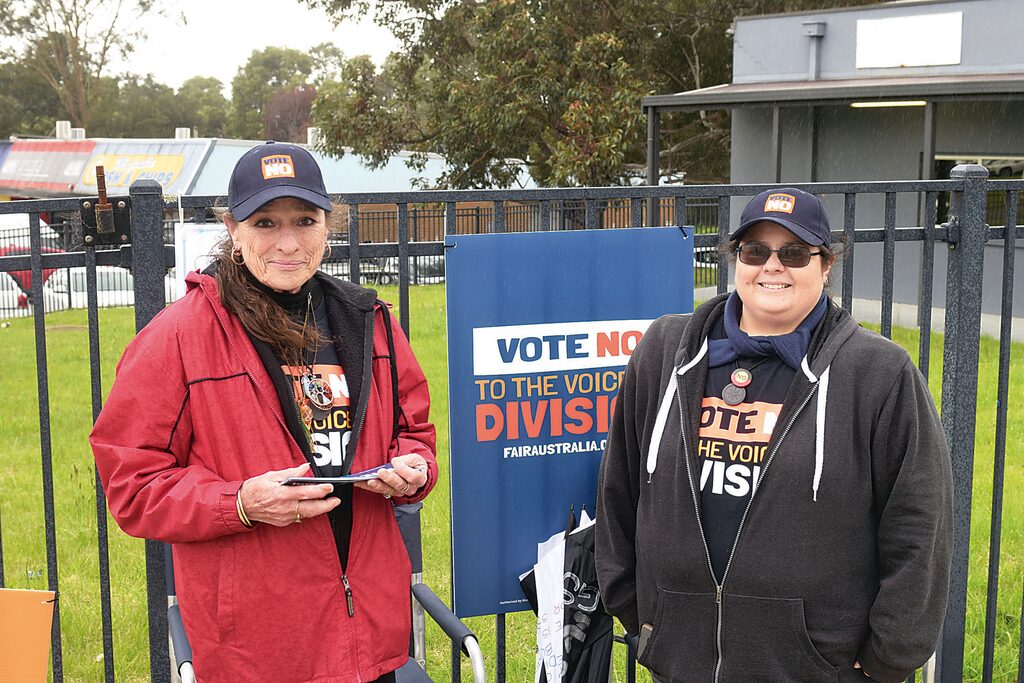
Their say: ‘No’ campaigners outside the Morwell voting centre.
